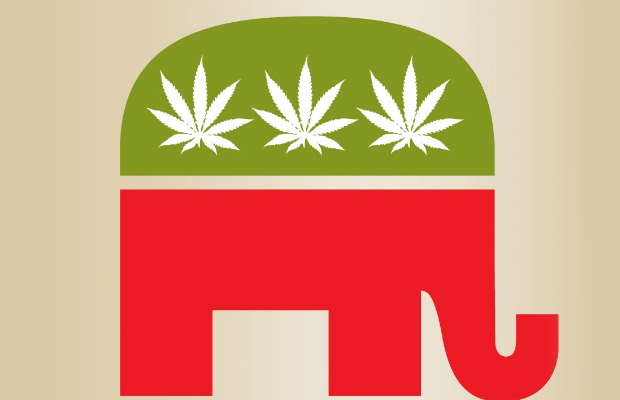The Future of Cannabis Under Trump’s 2025 Administration: A Tough Road Ahead?
WASHINGTON, D.C.–As the new Trump administration takes shape in 2025, the future of cannabis policy in the United States remains uncertain. While President Trump has occasionally expressed support for a state’s rights approach to cannabis legalization, his administration’s key appointments and recent actions suggest a much more conservative stance.
Key Appointments and Their Stance on Cannabis
- Kristi Noem – Secretary of Homeland Security: As the former Governor of South Dakota, Noem challenged a voter-approved cannabis legalization ballot in 2020, declaring it unconstitutional. This move raised concerns about her approach to federal cannabis enforcement, and she has a history of siding with law enforcement agencies over reform efforts.
- John Thune – Senate Majority Leader: Senator Thune has actively opposed cannabis legalization and joined other Republicans in challenging proposals to reclassify cannabis to Schedule III. His leadership in the Senate could present a major roadblock to any cannabis reform bills.
- Marco Rubio – Secretary of State: Senator Rubio has consistently opposed cannabis legalization efforts, often citing concerns about drug trafficking and public health risks. His appointment as Secretary of State does not place him directly in a policy-making role on domestic cannabis laws, but his influence in the administration signals continued resistance.
- Pam Bondi – Attorney General: As Florida’s Attorney General, Bondi opposed medical cannabis initiatives and was known for her stringent stance against cannabis legalization. Her new role as Attorney General gives her significant power over federal cannabis enforcement, including how the Department of Justice may approach state-legal markets.
- Terrence C. Cole – DEA Administrator: One of the most concerning appointments for cannabis advocates is Terrence C. “Terry” Cole, Trump’s pick to lead the Drug Enforcement Administration (DEA). Cole has over 28 years of law enforcement experience, including 22 years with the DEA. Previously, he served as Virginia’s Secretary of Public Safety and Homeland Security, overseeing multiple public safety agencies.
Cole has made it clear that he is opposed to cannabis legalization. In a February 2024 LinkedIn post, he stated, “Everybody knows my stance on marijuana after 30-plus years in law enforcement, so don’t even ask!” He has also shared articles warning about the increased potency of modern cannabis and its potential health risks. Given his record, it is likely that the DEA under his leadership will resist efforts to loosen federal cannabis restrictions.
- Robert F. Kennedy Jr. – Secretary of Health and Human Services Nominee: President Trump’s nominee for Secretary of Health and Human Services, Robert F. Kennedy Jr., has indicated that he will defer to the Drug Enforcement Administration (DEA) regarding cannabis rescheduling. In response to questions from Senator Elizabeth Warren about resuming proceedings on the scheduling of cannabis, Kennedy stated, “I defer to the DOJ and DEA on the allocation of their resources and the development of their priorities.” He further emphasized that the Controlled Substances Act (CSA) scheduling is a prerogative of the DEA and that he would ensure HHS’s expertise is available to assist as needed.
- Mike Johnson – Speaker of the House: Elected as Speaker in October 2023, Johnson has a consistent record of opposing cannabis reform. He voted against the SAFE Banking Act in 2019 and 2021, legislation designed to provide financial services to cannabis businesses operating legally under state laws. Johnson also opposed the Medical Marijuana and Cannabidiol Research Expansion Act, which aimed to facilitate research into cannabis’s medical potential. His voting record indicates a reluctance to support any form of cannabis legalization or research expansion.
No Clear Plans for Cannabis Reform
Despite the administration’s firm stance against cannabis, no official policy has been announced regarding rescheduling or enforcement priorities. The Biden administration had proposed moving cannabis from Schedule I to Schedule III under the Controlled Substances Act, which would have significant implications for medical research and business operations. However, with figures like Cole and Bondi in key positions, it is unclear whether the Trump administration will move forward with the rescheduling process or seek to reverse it.
Public Opinion and Industry Response
Despite the administration’s conservative appointments, public support for cannabis legalization remains strong across both red and blue states. Polls consistently show that a majority of Americans, including many Republican voters, favor legalization for medical and adult-use purposes.
In response, major legal cannabis companies have united to form the U.S. Cannabis Roundtable, a coalition aiming to push for federal cannabis reform under the new administration. This industry-led effort could play a crucial role in lobbying for policy changes and protecting state-legal markets.
A Tough Road Ahead for Cannabis Reform
While Trump’s allies initially claimed that his return to the White House would result in rapid cannabis legalization, his administration’s appointments suggest otherwise. Key figures like Pam Bondi, Kristi Noem, John Thune, Terrence Cole, Robert F. Kennedy Jr., and Mike Johnson signal a continuation of anti-cannabis policies.
However, with overwhelming public support for legalization and a growing industry pushing for reform, there is still hope that bipartisan efforts could lead to some level of progress. The cannabis industry and advocates will need to navigate a challenging political landscape, but the fight for federal legalization is far from over.





































